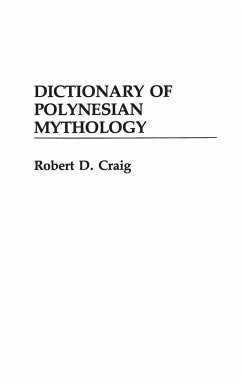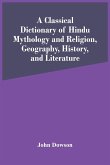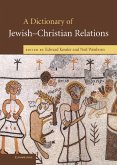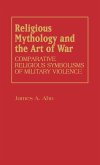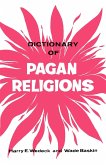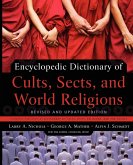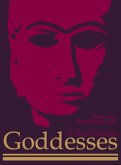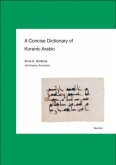"Anthropologists, historians, mythologists, and other students of Pacific cultures will find this work well written, well documented, and worthwhile. . . . (T)his is a significant new work and is highly recommended for Pacific studies and comparative mythology collections." Reference Quarterly
Prior to 1500 A.D. the Polynesians were the most widely spread people on earth, having settled an area of the Pacific, the Polynesian Triangle, twice the size of the United States. In this first reference guide to the mythology of these Vikings of the Pacific, Craig reviews Polynesian legends, stories, gods, goddesses, and heroes in hundreds of alphabetical entries that succinctly describe both characters and events. His wide-ranging and thorough introduction sets the subject in its geographic, historical, anthropological, and linguistic contexts, offering an illuminating overview of the origin of the Polynesians as a distinct people and tracing their voyages and settlements from Indonesia to Malaysia, Tonga, Samoa, the Marquesas, the various islands of eastern Polynesia, including Hawaii, Easter Island, and New Zealand. The introduction presents fascinating information on Polynesian navigational skills and the voyages themselves, as well as a chart that details the evolution of the thirty Polynesian languages and compares cognates from several of these languages. A simplified pronunciation guide and a selected list of Polynesian dictionaries and/or grammars are provided for those interested in pursuing the richness of the Polynesian languages. This introductory survey gives readers the necessary background to understand the origin, development, and dispersion of the myths throughout the Pacific basin. The Dictionary of Polynesian Mythology is the result of many years of research. The individual entries were gleaned from nearly 300 sources in English, German, French, and Polynesian languages with the majority extracted from a number of primary sources that date generally in the nineteenth and early twentieth centuries. The printed source materials for this volume are fully described and listed by geographical group, including Maori, Cook Islands, Tahitian, Marquesan, Hawaiian, Samoan, and Tongan. General collections that retell the Polynesian stories are also surveyed. The entries are alphabetically arranged by major mythological figure; lesser characters can be located in the index. Short bibliographical citations--author, date, and page number--are included at the end of each main entry to direct readers to fuller information contained in the printed sources. An appendix provides valuable supplemental information on Polynesian gods and goddesses. This dictionary is sure to become a basic reference tool for libraries, students, and scholars of Pacific history and culture, as well as for courses in mythology, religion, and philosophy.
Hinweis: Dieser Artikel kann nur an eine deutsche Lieferadresse ausgeliefert werden.
Prior to 1500 A.D. the Polynesians were the most widely spread people on earth, having settled an area of the Pacific, the Polynesian Triangle, twice the size of the United States. In this first reference guide to the mythology of these Vikings of the Pacific, Craig reviews Polynesian legends, stories, gods, goddesses, and heroes in hundreds of alphabetical entries that succinctly describe both characters and events. His wide-ranging and thorough introduction sets the subject in its geographic, historical, anthropological, and linguistic contexts, offering an illuminating overview of the origin of the Polynesians as a distinct people and tracing their voyages and settlements from Indonesia to Malaysia, Tonga, Samoa, the Marquesas, the various islands of eastern Polynesia, including Hawaii, Easter Island, and New Zealand. The introduction presents fascinating information on Polynesian navigational skills and the voyages themselves, as well as a chart that details the evolution of the thirty Polynesian languages and compares cognates from several of these languages. A simplified pronunciation guide and a selected list of Polynesian dictionaries and/or grammars are provided for those interested in pursuing the richness of the Polynesian languages. This introductory survey gives readers the necessary background to understand the origin, development, and dispersion of the myths throughout the Pacific basin. The Dictionary of Polynesian Mythology is the result of many years of research. The individual entries were gleaned from nearly 300 sources in English, German, French, and Polynesian languages with the majority extracted from a number of primary sources that date generally in the nineteenth and early twentieth centuries. The printed source materials for this volume are fully described and listed by geographical group, including Maori, Cook Islands, Tahitian, Marquesan, Hawaiian, Samoan, and Tongan. General collections that retell the Polynesian stories are also surveyed. The entries are alphabetically arranged by major mythological figure; lesser characters can be located in the index. Short bibliographical citations--author, date, and page number--are included at the end of each main entry to direct readers to fuller information contained in the printed sources. An appendix provides valuable supplemental information on Polynesian gods and goddesses. This dictionary is sure to become a basic reference tool for libraries, students, and scholars of Pacific history and culture, as well as for courses in mythology, religion, and philosophy.
Hinweis: Dieser Artikel kann nur an eine deutsche Lieferadresse ausgeliefert werden.

